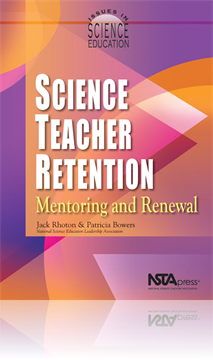All Research resources
NSTA Press Book
Sound: Stop Faking It! Finally Understanding Science So You Can Teach It
Muddled about what makes music? Stuck on the study of harmonics? Dumbfounded by how sound gets around? Now you no longer have to struggle to teach concepts you really don’t grasp yourself. Sound takes an intentionally light touch to help out all...
By William C. Robertson, Ph.D.
NSTA Press Book
Light: Stop Faking It! Finally Understanding Science So You Can Teach It
Why is left right and right left in the mirror? Baffled by the basics of reflection and refraction? Wondering just how the eye works? If you have trouble teaching concepts about light that you don’t fully grasp yourself, get help from a book that�...
By William C. Robertson, Ph.D.
Book Chapter
Turnover and Shortages among Science and Mathematics Teachers in the United States
After establishing how many teachers depart from their teaching jobs and how these rates compare with other occupations, this chapter presents statistics on the reasons why teachers move from or leave their teaching jobs. These data are drawn from it...
Book Chapter
Collaborative Efforts to Retain New Teachers: A University-School District Partnership
This chapter describes the Teacher to Teacher Program—a collaborative effort between Furman University and two local school districts. The program provides an avenue for improved teacher retention and mentoring. The partnership creates a community ...
Book Chapter
ASIST: An Induction Program for Science Teachers
Quality induction programs are needed for science teachers. This chapter describes one program—Alternative Support for Induction Science Teachers (ASIST)—developed specifically for beginning science teachers based upon their expressed and demonst...
Book Chapter
Honoring Adult Learners: Adult Learning Theories and Implications for Professional Development
Designers of adult learning must consider carefully the research on adult learning and change and factor this into learning designs. In this chapter, the author reviews a classic adult learning model and two contemporary theories—constructivism and...



